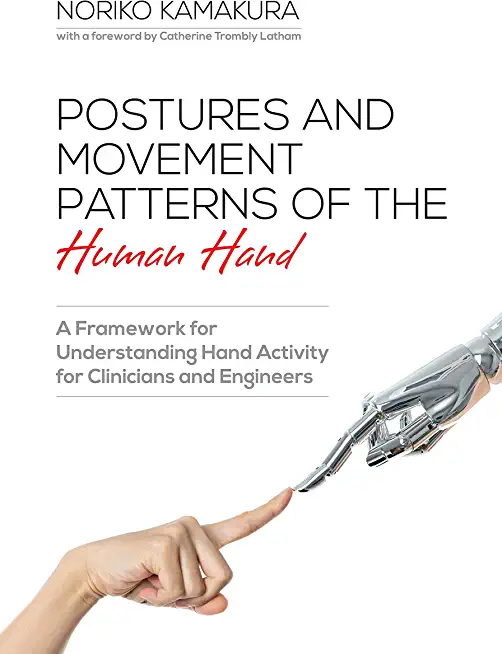
Kamakura, Noriko
Think of the complexity of ordinary hand activity and how to describe it all, both precisely and concisely. The author, a noted occupational therapist in Japan, offers a disciplined approach to doing just that. Whereas research has heretofore been limited mainly to how the hand grips, the methodology here is set up to account for grips, non-grip postures, and movement patterns, based on thousands of laboratory observations. This approach can provide hand experts with specific ways to conceptualize and study hand disabilities, artificial hands, and robotic hands.
The author first surveys research over the past 100 years on forms that the hand normally assumes, noting the preponderance of studies on hand grips, with less attention having been paid to what the hand looks like when in non-grip postures and when moving its thumb and fingers. She then presents, in separate studies, the development of taxonomies to comprehensively account for grips, non-grip forms, and thumb and finger movements. Movements of the thumb and fingers appear as patterns readily distinguishable via an "XYZ notation" developed by the author. When combined into a single framework, the three taxonomies can describe the vast repertoire of ordinary activity performed by the normal hand.
This book should be useful for hand experts in such fields as biomedical and robotic engineering, prosthetics and orthotics, occupational therapy, hand therapy, orthopedic surgery, kinesiology, and physical anthropology. Through this book, the reader can obtain a broad image of hand activity and learn to observe and record it in fine detail.
WORDS OF PRAISE
Part history, part technical manual, this book is a gem that is no longer hidden for anyone interested in hand function.
--Sydney Schaefer, PhD, Biomedical Engineering, Arizona State University







